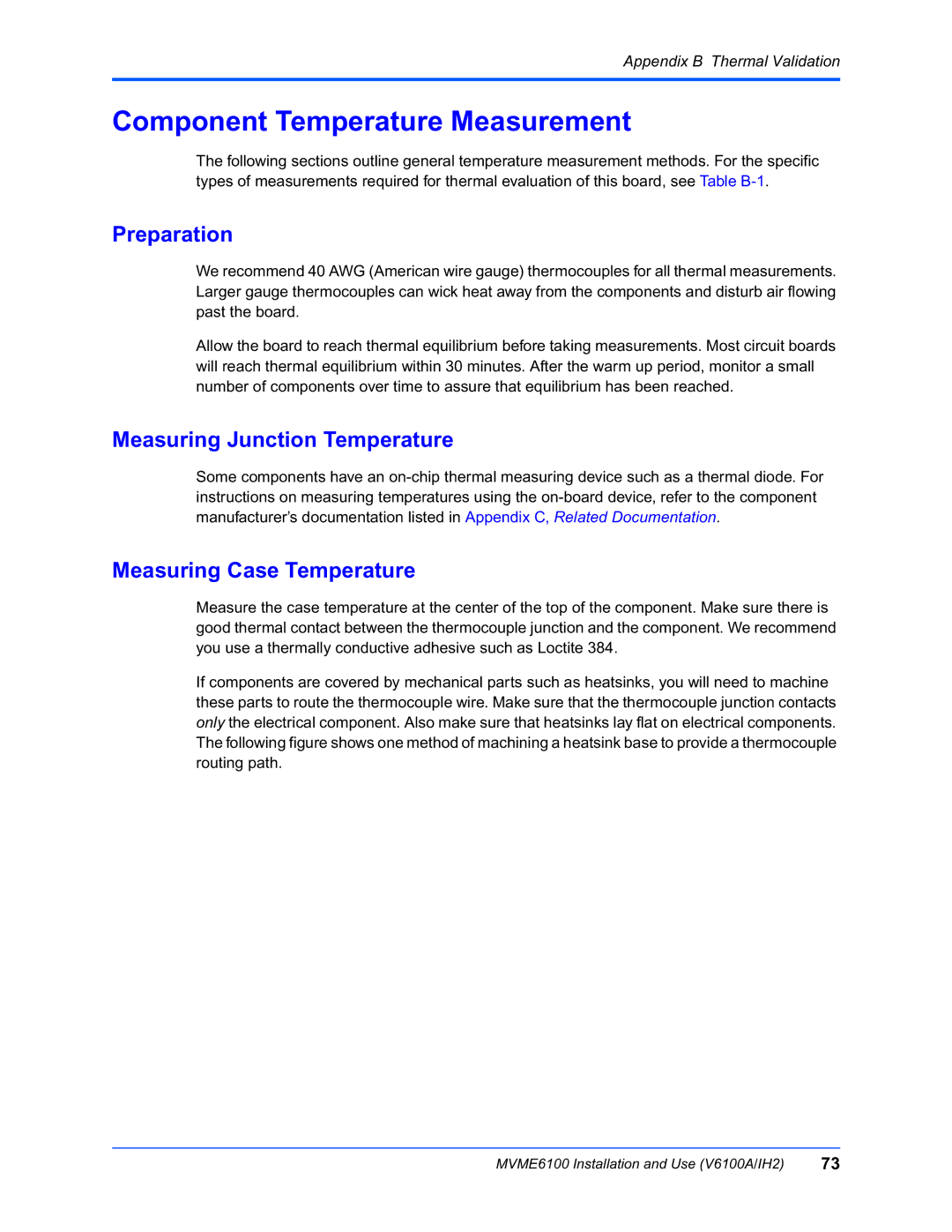
Appendix B Thermal Validation
Component Temperature Measurement
The following sections outline general temperature measurement methods. For the specific types of measurements required for thermal evaluation of this board, see Table
Preparation
We recommend 40 AWG (American wire gauge) thermocouples for all thermal measurements. Larger gauge thermocouples can wick heat away from the components and disturb air flowing past the board.
Allow the board to reach thermal equilibrium before taking measurements. Most circuit boards will reach thermal equilibrium within 30 minutes. After the warm up period, monitor a small number of components over time to assure that equilibrium has been reached.
Measuring Junction Temperature
Some components have an
Measuring Case Temperature
Measure the case temperature at the center of the top of the component. Make sure there is good thermal contact between the thermocouple junction and the component. We recommend you use a thermally conductive adhesive such as Loctite 384.
If components are covered by mechanical parts such as heatsinks, you will need to machine these parts to route the thermocouple wire. Make sure that the thermocouple junction contacts only the electrical component. Also make sure that heatsinks lay flat on electrical components. The following figure shows one method of machining a heatsink base to provide a thermocouple routing path.
MVME6100 Installation and Use (V6100A/IH2) | 73 |
